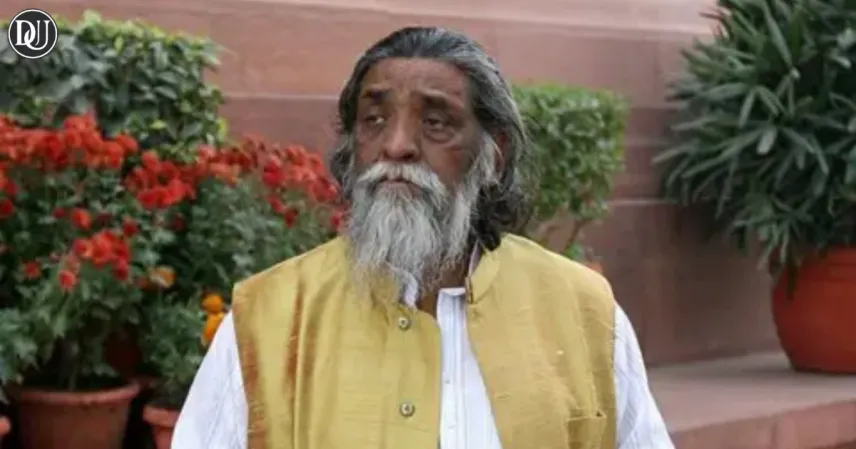Shibu Soren, the tribal leader from Jharkhand, passing away at 81… that's big, isn't it? Honestly, when I saw the news, it just felt like the end of an era for Indian politics, especially for tribal communities. He was such a pivotal figure, like, really the voice for people who often don't have one.
ЁЯМ┐ Early Activism and the Jharkhand Dream
People call him "Guruji," you know? That name itself tells you so much about the respect he commanded. He wasn't just a politician; he started out as this social reformer, fighting against the exploitation of tribals, the moneylenders, the land grabbers. It was brutal back then, and he basically dedicated his life to it. Imagine trying to organize people in remote, forested areas against powerful, established systems—that takes some serious guts. His whole push for a separate Jharkhand state, carving it out of Bihar, was basically his life’s work. He saw how the tribal people were being marginalized, how their land and culture were disappearing. It's wild to think about the kind of sustained movement that took, over decades.
тЬК A Champion for Tribal Rights
His commitment to the Adivasi people was just unwavering. He rallied them, educated them, gave them a sense of collective power they hadn't really had before. He wasn't afraid to confront the system, which, you know, often meant clashing with established power structures. The Hindu article talks about him as an "iconic tribal leader," and honestly, that feels right. He didn't just advocate; he lived the struggle. He understood their issues from the ground up, not from some policy paper. It's probably why he resonated so deeply with them.
тЪЦя╕П The Rollercoaster of Political Power
He became Chief Minister of Jharkhand multiple times, which, you have to admit, is quite a feat given the volatile nature of state politics there. But it wasn't always smooth sailing. His career was definitely marked by its share of controversies—legal battles, accusations. I remember hearing bits and pieces about some of them over the years. It's like, on one hand, this revered figure, and on the other, a politician navigating some pretty rough waters. It shows the complexities of leadership, especially when you're trying to fundamentally change things within a flawed system. He always seemed to bounce back, though, which is pretty remarkable resilience, if you ask me.
ЁЯМЯ The Legacy of "Guruji"
The title "Guruji" really stuck because he was more than just a political leader for many. He was a teacher, a guide, someone who literally showed them a path forward out of poverty and oppression. He fought for their land rights, for better education, for their very identity. His impact on the political landscape of Jharkhand is just undeniable—the state exists largely because of his relentless struggle and the movement he spearheaded. It’s hard to imagine Jharkhand without his shadow, good or bad, looming large.
ЁЯМН Impact Beyond Jharkhand
While his main focus was Jharkhand, his story—this fight for indigenous rights, for self-determination—really resonates beyond state borders, even beyond India. It’s a universal theme, isn't it? The struggle of marginalized communities to preserve their culture, their land, their way of life against the tide of industrialization and dominant cultures. He became a symbol for that broader fight in India, you know? Like, when you think of tribal rights movements in India, his name pretty much immediately comes up.
ЁЯХ░я╕П A Complex Figure, An Enduring Influence
He was a complex man, for sure—a mix of revolutionary, politician, and spiritual guide. You can't really sum up a life like that in a few sentences. But what's clear is his unwavering commitment to his people. He leaves behind a massive political and social legacy. Jharkhand as a state, and the continued awareness around tribal rights, stands as a testament to his life's work. It makes you think about the sheer dedication some people have to a cause, doesn't it? Like, what an incredible journey, spanning decades, influencing millions. The BBC even called him an "India tribal icon," which, yeah, I think that just about nails it. A true pioneer.










